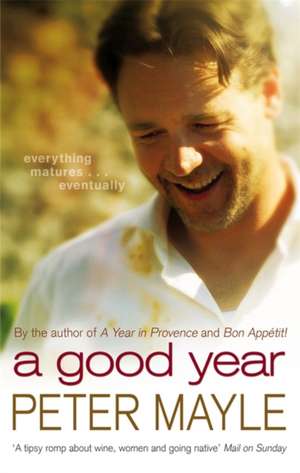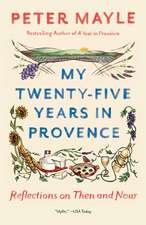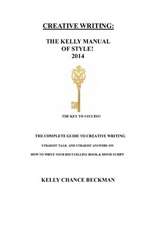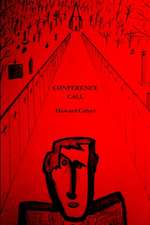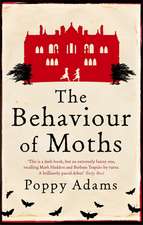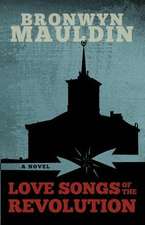A Good Year
Autor Peter Mayleen Limba Engleză Paperback – 11 oct 2006
| Toate formatele și edițiile | Preț | Express |
|---|---|---|
| Paperback (2) | 47.69 lei 3-5 săpt. | +23.03 lei 7-13 zile |
| Little Brown Book Group – 11 oct 2006 | 47.69 lei 3-5 săpt. | +23.03 lei 7-13 zile |
| Vintage Books USA – 31 mai 2005 | 100.76 lei 3-5 săpt. |
Preț: 47.69 lei
Preț vechi: 63.11 lei
-24% Nou
Puncte Express: 72
Preț estimativ în valută:
9.13€ • 9.55$ • 7.58£
9.13€ • 9.55$ • 7.58£
Carte disponibilă
Livrare economică 12-26 martie
Livrare express 26 februarie-04 martie pentru 33.02 lei
Preluare comenzi: 021 569.72.76
Specificații
ISBN-13: 9780751539660
ISBN-10: 075153966X
Pagini: 256
Dimensiuni: 128 x 196 x 18 mm
Greutate: 0.19 kg
Editura: Little Brown Book Group
Locul publicării:United Kingdom
ISBN-10: 075153966X
Pagini: 256
Dimensiuni: 128 x 196 x 18 mm
Greutate: 0.19 kg
Editura: Little Brown Book Group
Locul publicării:United Kingdom
Notă biografică
Peter Mayle eats, drinks, writes, and lives in Provence. This is his ninth book, and his fifth novel.
Extras
One
It was high summer in London, and the raindrops felt almost warm on Max Skinner’s face as he ran up Rutland Gate and into Hyde Park. He followed the curve of the Serpentine while the shapes of other people determined to suffer before breakfast came and went in the gray predawn murk, their faces slick with rain and sweat, their progress marked by the moist slap of their footsteps on the path.
The weather had discouraged all but the hard-core joggers. It was too wet for those bouncing, pink-cheeked girls who sometimes provided Max with a little welcome distraction. Too wet for the resident flasher who was usually on duty behind a bush near the bandstand, leer and raincoat at the ready. Too wet even for the pair of Jack Russells whose joy it was to nip at every passing ankle, their embarrassed owner lumbering after them mouthing apologies.
It was too wet, and perhaps too early. Max had been getting into the office late recently, often as late as seven-thirty, and Amis, his boss and nemesis, was not pleased. This morning would be different, Max promised himself. He’d get in first, and make sure the miserable sod knew it. That was the big problem with Max’s work- ing life: he liked the job but loathed the people, Amis in particular.
Turning at the top of the Serpentine, Max started back toward the Albert Memorial, his thoughts on the day ahead. There was a deal that he’d been nursing along for months, a deal that would deliver a bonus big enough to pay his infinitely patient tailor and, much more important, get the bank off his back. Occasional murmurs of discontent about the size of his overdraft had turned into letters couched in ever more menacing terms, underlining the fact that it had been a lean year so far. But it was going to change, Max felt sure. With a surge of optimism, he sprinted down Rutland Gate, shook himself like a dog on the doorstep, and let himself into the stucco-fronted Georgian house that a developer had gutted and converted into what he described as highly desirable executive pieds-à-terre.
The janitor of the building, a gnome of a man with a papery, subterranean complexion, looked up from his vacuum cleaner and clucked his tongue at the trail of wet footprints Max was leaving on the carpet.
“You’ll be the death of me, you will. Look at that bleeding mud, all over my Axminster.”
“Sorry, Bert. I keep forgetting to take off my shoes before I come in.”
Bert sniffed. They had the same conversation every time it rained, and it always ended with the same question. Bert was a keen follower of the stock market, and longed for the chance to do a little insider trading. “Got any good tips for today, then?”
Max paused at the door of the elevator and put a finger to his lips before speaking. “Buy low. Sell high. Don’t tell a soul.”
Bert shook his head. Cheeky young git. But then, he was the only one in the building to remember Bert’s birthday with a bottle of Scotch, and there was always a nicely filled envelope from him at Christmas. Not a bad lad, thought Bert, as he pushed the vacuum cleaner back and forth over the traces of wet mud.
Max’s second-floor apartment was a work in prog- ress; or, as a decorator friend with his eye on a lucrative assignment had said, an unfinished symphony. At the moment, it was a place used for sleep and very little else. There were two good modern paintings leaning against the wall, a few pieces of spiky avant-garde furniture, a dusty and sorry-looking ficus, a battery of stereo and video equipment. Despite having been there for more than two years, Max had managed to avoid giving the apartment any personal touches, apart from a small pile of running shoes in one corner. He went into the tiny, unused kitchen, opened the refrigerator, empty except for a bottle of vodka and a carton of orange juice, and took the carton with him into the bathroom.
Hot water and cold juice. The after-run shower was a daily reward for one of his few healthy habits. He worked too hard, ate in the irregular way of bachelors, slept too little, and certainly drank more than the five units of alcohol a week decreed, with sanctimonious relish, by the company doctor. But he ran, and he was young. Forty was several years away, and by then, he told himself, he would have his life and his finances in order, ready to settle down and—who knows—make another gallant attempt at matrimony.
He studied his reflection in the shaving mirror. Blue eyes, only slightly bloodshot; dark brown hair, cut short in the current fashion; skin taut over high cheekbones. As yet, no obvious bags or wrinkles. Could be worse, he thought, as he stepped over the wet towel and discarded running clothes on the bathroom floor.
Five minutes later, he was ready to conquer the financial universe, dressed in the uniform and trappings of the modern young executive: dark suit, dark blue shirt, dark tie, a bulky watch designed for deep-sea divers obsessed with punctuality, cell phone and car keys at the ready. He ducked through the drizzle and into the obligatory black BMW for the drive to the City, where today, he felt sure, the long-awaited deal would come through. And then the bonus. He’d finish furnishing the apartment, hire a housecleaner to keep it spotless, take a few days off, and drive down to Saint-Tropez before all the girls went back to Paris. Not even the weather forecast on the radio—scattered showers, followed by outbreaks of heavier rain, with a chance of hail—could dampen his spirits. This was going to be a good day.
At this time of the morning, twenty minutes should have been more than enough to get him into the Lawton Brothers’ offices. They were at the top end of Threadneedle Street—“handy for the Bank of England,” as the senior Lawton brother was fond of telling his prospective clients. Established in the late eighties, the company had boomed through the nineties with everyone else, merging and acquiring, ducking and diving, and gaining a reputation for savage asset-stripping that was the envy of its more ethical and kindhearted competitors. Now it was often described in the financial press as a model of tough, efficient management, well suited to today’s hard times. Young executives who survived a few years at Lawtons could survive anywhere.
Max’s cell phone rang as he was coming down Ludgate Hill. It was just before six-thirty.
“Taking the morning off, are we?” It was the voice of Amis, nasal and aggressive. He didn’t wait for Max to answer. “We need to talk. See if you can get in here by lunchtime. Tracy will tell you the restaurant.”
So much for my good day, Max thought. Although, if he were honest with himself, no day that included Amis could be entirely good. Mutual dislike had been in the air the instant the two men met, when Amis had swaggered in, fresh from spending three years in New York, to run the London office. From the start, their relationship had been tainted, as is so often the case in England, by the simple difference in the way they spoke English. Their accents.
Max was the product of a minor public school, and had grown up in the leafy, middle-class comfort of the Surrey hills. Amis was born and raised in the grim outer reaches of south London, neither leafy nor comfortable. In fact, they had grown up less than twenty miles apart, but it might as well have been twenty thousand. Max liked to think that there was not a trace of snobbery in him. Amis liked to think that he didn’t have a chip on his shoulder. They were both wrong. But each had a grudging respect for the other’s ability, and so, with difficulty, they tolerated one another.
Easing the BMW into its appointed slot in the underground garage, Max tried to guess the reason for today’s meeting. Lunch at Lawtons was normally a sandwich at your desk, eyes glued to the screen. Lunch, in a phrase that Amis had picked up in New York, was for wimps. And yet here he was talking about a proper lunch with knives and forks—a wimp’s lunch—in a restaurant. It was curious. Max was still puzzling over it as he stepped out of the elevator and made his way through the rows of partitions to his own cubicle.
From the Hardcover edition.
It was high summer in London, and the raindrops felt almost warm on Max Skinner’s face as he ran up Rutland Gate and into Hyde Park. He followed the curve of the Serpentine while the shapes of other people determined to suffer before breakfast came and went in the gray predawn murk, their faces slick with rain and sweat, their progress marked by the moist slap of their footsteps on the path.
The weather had discouraged all but the hard-core joggers. It was too wet for those bouncing, pink-cheeked girls who sometimes provided Max with a little welcome distraction. Too wet for the resident flasher who was usually on duty behind a bush near the bandstand, leer and raincoat at the ready. Too wet even for the pair of Jack Russells whose joy it was to nip at every passing ankle, their embarrassed owner lumbering after them mouthing apologies.
It was too wet, and perhaps too early. Max had been getting into the office late recently, often as late as seven-thirty, and Amis, his boss and nemesis, was not pleased. This morning would be different, Max promised himself. He’d get in first, and make sure the miserable sod knew it. That was the big problem with Max’s work- ing life: he liked the job but loathed the people, Amis in particular.
Turning at the top of the Serpentine, Max started back toward the Albert Memorial, his thoughts on the day ahead. There was a deal that he’d been nursing along for months, a deal that would deliver a bonus big enough to pay his infinitely patient tailor and, much more important, get the bank off his back. Occasional murmurs of discontent about the size of his overdraft had turned into letters couched in ever more menacing terms, underlining the fact that it had been a lean year so far. But it was going to change, Max felt sure. With a surge of optimism, he sprinted down Rutland Gate, shook himself like a dog on the doorstep, and let himself into the stucco-fronted Georgian house that a developer had gutted and converted into what he described as highly desirable executive pieds-à-terre.
The janitor of the building, a gnome of a man with a papery, subterranean complexion, looked up from his vacuum cleaner and clucked his tongue at the trail of wet footprints Max was leaving on the carpet.
“You’ll be the death of me, you will. Look at that bleeding mud, all over my Axminster.”
“Sorry, Bert. I keep forgetting to take off my shoes before I come in.”
Bert sniffed. They had the same conversation every time it rained, and it always ended with the same question. Bert was a keen follower of the stock market, and longed for the chance to do a little insider trading. “Got any good tips for today, then?”
Max paused at the door of the elevator and put a finger to his lips before speaking. “Buy low. Sell high. Don’t tell a soul.”
Bert shook his head. Cheeky young git. But then, he was the only one in the building to remember Bert’s birthday with a bottle of Scotch, and there was always a nicely filled envelope from him at Christmas. Not a bad lad, thought Bert, as he pushed the vacuum cleaner back and forth over the traces of wet mud.
Max’s second-floor apartment was a work in prog- ress; or, as a decorator friend with his eye on a lucrative assignment had said, an unfinished symphony. At the moment, it was a place used for sleep and very little else. There were two good modern paintings leaning against the wall, a few pieces of spiky avant-garde furniture, a dusty and sorry-looking ficus, a battery of stereo and video equipment. Despite having been there for more than two years, Max had managed to avoid giving the apartment any personal touches, apart from a small pile of running shoes in one corner. He went into the tiny, unused kitchen, opened the refrigerator, empty except for a bottle of vodka and a carton of orange juice, and took the carton with him into the bathroom.
Hot water and cold juice. The after-run shower was a daily reward for one of his few healthy habits. He worked too hard, ate in the irregular way of bachelors, slept too little, and certainly drank more than the five units of alcohol a week decreed, with sanctimonious relish, by the company doctor. But he ran, and he was young. Forty was several years away, and by then, he told himself, he would have his life and his finances in order, ready to settle down and—who knows—make another gallant attempt at matrimony.
He studied his reflection in the shaving mirror. Blue eyes, only slightly bloodshot; dark brown hair, cut short in the current fashion; skin taut over high cheekbones. As yet, no obvious bags or wrinkles. Could be worse, he thought, as he stepped over the wet towel and discarded running clothes on the bathroom floor.
Five minutes later, he was ready to conquer the financial universe, dressed in the uniform and trappings of the modern young executive: dark suit, dark blue shirt, dark tie, a bulky watch designed for deep-sea divers obsessed with punctuality, cell phone and car keys at the ready. He ducked through the drizzle and into the obligatory black BMW for the drive to the City, where today, he felt sure, the long-awaited deal would come through. And then the bonus. He’d finish furnishing the apartment, hire a housecleaner to keep it spotless, take a few days off, and drive down to Saint-Tropez before all the girls went back to Paris. Not even the weather forecast on the radio—scattered showers, followed by outbreaks of heavier rain, with a chance of hail—could dampen his spirits. This was going to be a good day.
At this time of the morning, twenty minutes should have been more than enough to get him into the Lawton Brothers’ offices. They were at the top end of Threadneedle Street—“handy for the Bank of England,” as the senior Lawton brother was fond of telling his prospective clients. Established in the late eighties, the company had boomed through the nineties with everyone else, merging and acquiring, ducking and diving, and gaining a reputation for savage asset-stripping that was the envy of its more ethical and kindhearted competitors. Now it was often described in the financial press as a model of tough, efficient management, well suited to today’s hard times. Young executives who survived a few years at Lawtons could survive anywhere.
Max’s cell phone rang as he was coming down Ludgate Hill. It was just before six-thirty.
“Taking the morning off, are we?” It was the voice of Amis, nasal and aggressive. He didn’t wait for Max to answer. “We need to talk. See if you can get in here by lunchtime. Tracy will tell you the restaurant.”
So much for my good day, Max thought. Although, if he were honest with himself, no day that included Amis could be entirely good. Mutual dislike had been in the air the instant the two men met, when Amis had swaggered in, fresh from spending three years in New York, to run the London office. From the start, their relationship had been tainted, as is so often the case in England, by the simple difference in the way they spoke English. Their accents.
Max was the product of a minor public school, and had grown up in the leafy, middle-class comfort of the Surrey hills. Amis was born and raised in the grim outer reaches of south London, neither leafy nor comfortable. In fact, they had grown up less than twenty miles apart, but it might as well have been twenty thousand. Max liked to think that there was not a trace of snobbery in him. Amis liked to think that he didn’t have a chip on his shoulder. They were both wrong. But each had a grudging respect for the other’s ability, and so, with difficulty, they tolerated one another.
Easing the BMW into its appointed slot in the underground garage, Max tried to guess the reason for today’s meeting. Lunch at Lawtons was normally a sandwich at your desk, eyes glued to the screen. Lunch, in a phrase that Amis had picked up in New York, was for wimps. And yet here he was talking about a proper lunch with knives and forks—a wimp’s lunch—in a restaurant. It was curious. Max was still puzzling over it as he stepped out of the elevator and made his way through the rows of partitions to his own cubicle.
From the Hardcover edition.
Recenzii
“A delightful divertissement. . . .plenty of . . . local color, comic dalliances and a feastful of entertainment.” –The Seattle Times “Happily snide (and knowledgeable). . . . Wicked turns of phrase . . . . Quite agreeable, with an insouciant nose . . . perfect for summer reading.” –Chicago Sun-Times“Mayle makes Provence sound like the most enticing place this side of paradise. Reservations, anyone?” –People “Bubbly, light-hearted, good-natured. . . . [Mayle’s] descriptions of food and country ambience. . . live up to his reputation.” –The Baltimore Sun “Fast-moving and fun. . . . a deliciously light-hearted tale. . . . The Provencal life never tasted so good.” –Rocky Mountain News
